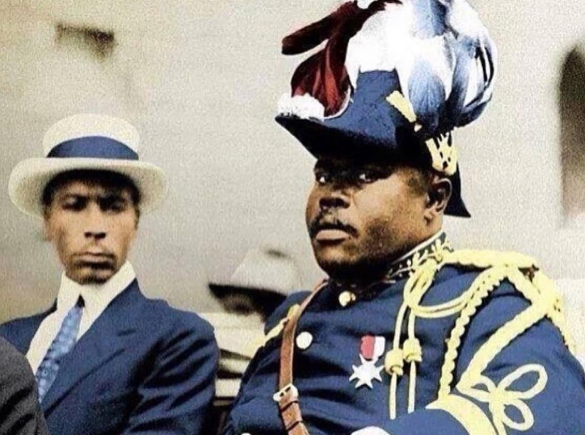In a historic move, U.S. President Joe Biden has granted a posthumous pardon to Marcus Mosiah Garvey, the influential civil rights and human rights leader.
The pardon, announced on the final day of Biden’s presidency, serves to correct the injustice of Garvey’s 1923 conviction for mail fraud—a conviction widely regarded as politically motivated and marred by prosecutorial misconduct.
Garvey, who was convicted for allegedly fraudulently advertising shares in a ship that his Black Star Line company did not yet own, was sentenced to five years in prison. While President Calvin Coolidge commuted his sentence in 1927, Garvey was immediately deported to Jamaica upon his release. He spent the rest of his life advocating for the Black community and Pan-Africanism before passing away in 1940. His contributions to civil rights, African unity, and cultural pride have made him a revered figure worldwide.
In his statement, President Biden emphasized Garvey’s significant impact on the global civil rights movement, noting that Dr. Martin Luther King, Jr. described Garvey as “the first man of color in the history of the United States to lead and develop a mass movement.” The pardon not only acknowledges Garvey’s legacy but also seeks to restore his reputation, which had been tarnished by an unjust conviction.
Years of efforts to pardon Marcus Garvey
The decision follows years of efforts to clear Garvey’s name. A coalition of U.S. lawmakers, including Jamaican-American Congresswoman Yvette Clarke, had long advocated for the posthumous pardon, arguing that Garvey’s conviction was a targeted attempt to silence his activism. A letter sent to President Biden last year highlighted the misconduct underlying Garvey’s conviction, as part of a series of calls for exoneration that have been ongoing for decades.
Congresswoman Clarke, who has been a vocal advocate for Garvey’s exoneration, spoke of the significance of the pardon in a 2023 interview, saying it would “correct the historical record and restore the legacy of an American hero.” She echoed the sentiments of those who saw Garvey as a champion of liberation for people of African descent, whose work transcended borders and whose vision continues to resonate globally.
Alongside Garvey’s pardon, President Biden granted clemency to several other individuals. Darryl Chambers, a gun violence prevention advocate who was convicted of a non-violent drug offense, also received a pardon, as did immigration advocate Ravidath “Ravi” Ragbir, who was convicted in 2001. Don Leonard Scott, who was convicted of a non-violent drug offense in 1994 and went on to become Virginia’s first Black speaker of the state legislature, was another recipient of a pardon. Kemba Smith Pradia, a criminal justice reform advocate who was convicted in 1994 on non-violent drug charges, was also pardoned.
In addition to the pardons, President Biden commuted the sentences of Robin Peoples and Michelle West, two individuals sentenced in the 1990s who have demonstrated remarkable rehabilitation.
The pardon, coming just days after a heartfelt plea from Garvey’s son, Dr. Julius Garvey, marks a significant step in the ongoing fight for racial justice and historical redress. Dr. Garvey last week expressed his hope that the president would use his clemency power to address the wrongs done to his father, saying the pardon would “correct an injustice.”
For many supporters of Garvey’s legacy, this pardon is seen as a long-overdue acknowledgment of his contributions to civil rights, African pride, and Black empowerment.
Garvey’s influence remains significant, particularly in the Pan-African movement, where he played a key role in uniting people of African descent worldwide. He founded the Universal Negro Improvement Association (UNIA) and the Black Star Line, pioneering initiatives for Black empowerment. His advocacy for racial pride and economic independence made him a major figure in the fight for civil rights.
In 1969, Marcus Garvey was posthumously declared Jamaica’s first National Hero, a testament to his lasting impact on the nation.















